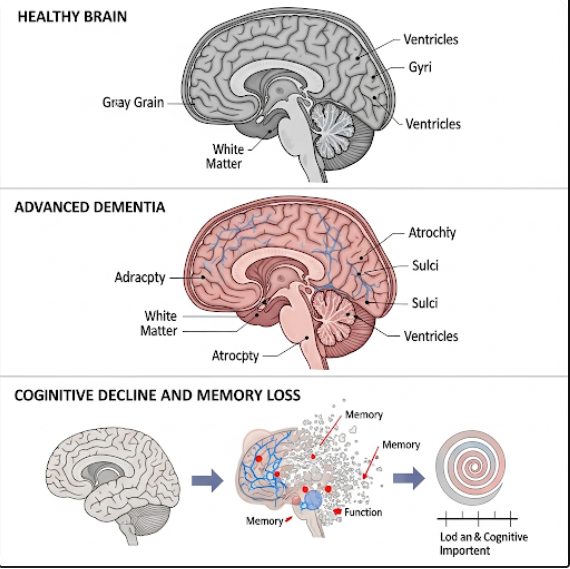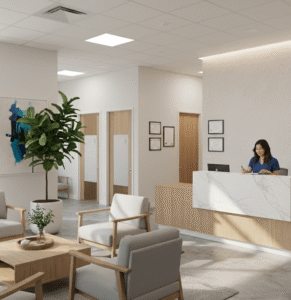Overview
Dementia is a progressive cognitive disorder that impairs memory, thinking, and daily functioning. It is a major health concern in Korea, particularly with the rapidly aging population. Early diagnosis and management are emphasized in hospitals like Seoul National University Hospital, Asan Medical Center, and Samsung Medical Center, along with community programs to support patients and caregivers.
What is Dementia?
Dementia refers to a group of symptoms affecting cognitive abilities, including memory, judgment, and communication. It is caused by neurodegenerative diseases such as Alzheimer’s disease, vascular dementia, Lewy body dementia, and frontotemporal dementia. Dementia can affect adults of all ages but is most common in older individuals.
Symptoms
- Memory loss affecting daily life
- Difficulty with problem-solving or planning
- Confusion about time or place
- Trouble understanding visual images or spatial relationships
- Language difficulties, such as forgetting words
- Changes in mood or personality
- Withdrawal from social activities
Causes
- Alzheimer’s disease (most common cause)
- Vascular issues leading to reduced blood flow in the brain
- Lewy body deposits in brain tissue
- Frontotemporal lobe degeneration
- Chronic medical conditions (e.g., diabetes, hypertension)
- Head injury or repeated concussions
Risk Factors
- Advanced age
- Family history of dementia or Alzheimer’s disease
- Cardiovascular risk factors (hypertension, diabetes, obesity)
- Smoking and excessive alcohol use
- Sedentary lifestyle
- Low educational attainment or cognitive inactivity
Complications
- Loss of independence in daily living
- Increased risk of falls and injuries
- Behavioral disturbances such as agitation or aggression
- Malnutrition or dehydration
- Social isolation and emotional distress
- Increased caregiver burden
Prevention
- Regular physical and mental exercise
- Healthy diet rich in fruits, vegetables, and omega-3 fatty acids
- Management of cardiovascular risk factors
- Avoiding smoking and excessive alcohol consumption
- Maintaining social engagement and cognitive activity
- Routine health check-ups for early detection
Treatment Options in Korea
Treatment focuses on symptom management, slowing disease progression, and supporting caregivers.
- Diagnosis
- Cognitive tests (MMSE, MoCA)
- Blood tests to rule out reversible causes
- Brain imaging (CT, MRI, PET)
- Assessment of functional abilities and daily living skills
- Medical Treatments
- Cholinesterase inhibitors (donepezil, rivastigmine)
- NMDA receptor antagonists (memantine)
- Treatment of coexisting conditions such as depression or anxiety
- Medications to manage behavioral symptoms when necessary
- Supportive Care
- Occupational therapy to maintain independence
- Speech and language therapy for communication difficulties
- Cognitive stimulation and memory training
- Caregiver education and support groups
- Adaptation of home environment for safety
- Specialized Hospitals in Korea
- Seoul National University Hospital – Geriatric and memory clinics
- Asan Medical Center – Multidisciplinary dementia care
- Samsung Medical Center – Advanced diagnostics and rehabilitation
- Community-based dementia centers for long-term follow-up
- Long-Term Follow-Up
- Regular cognitive assessments to monitor progression
- Medication adjustments as needed
- Ongoing support for caregivers
- Planning for long-term care and advanced directives













